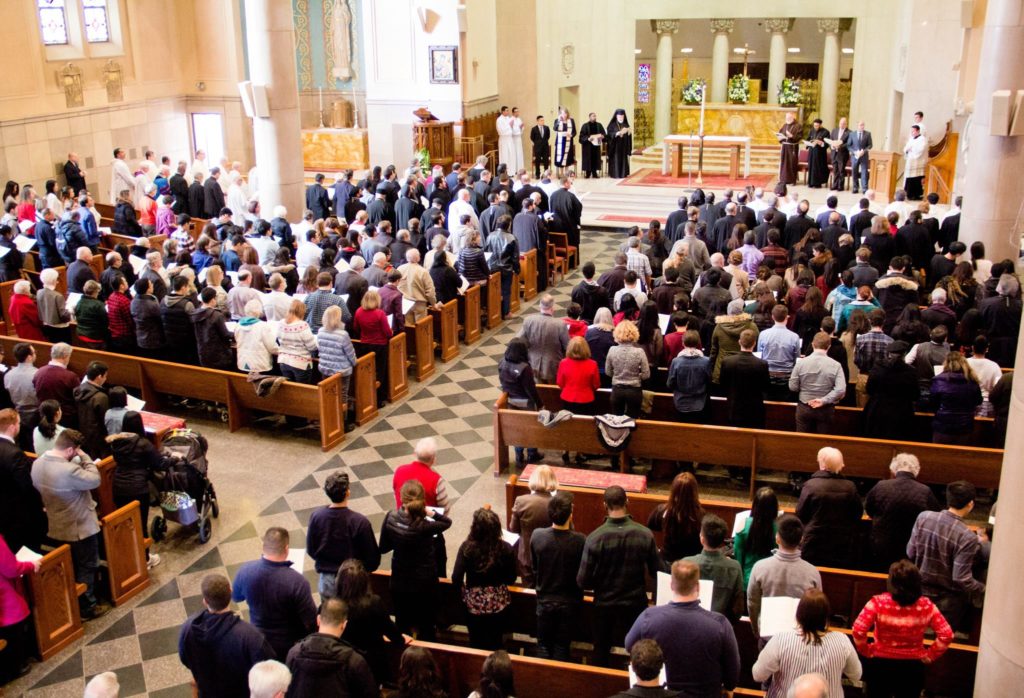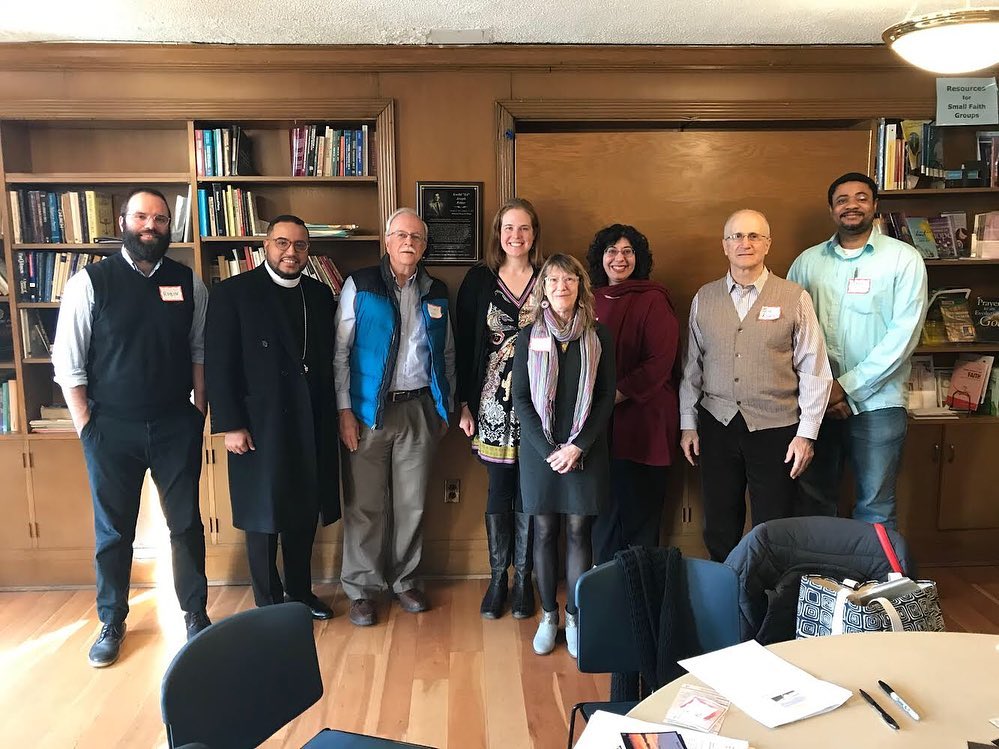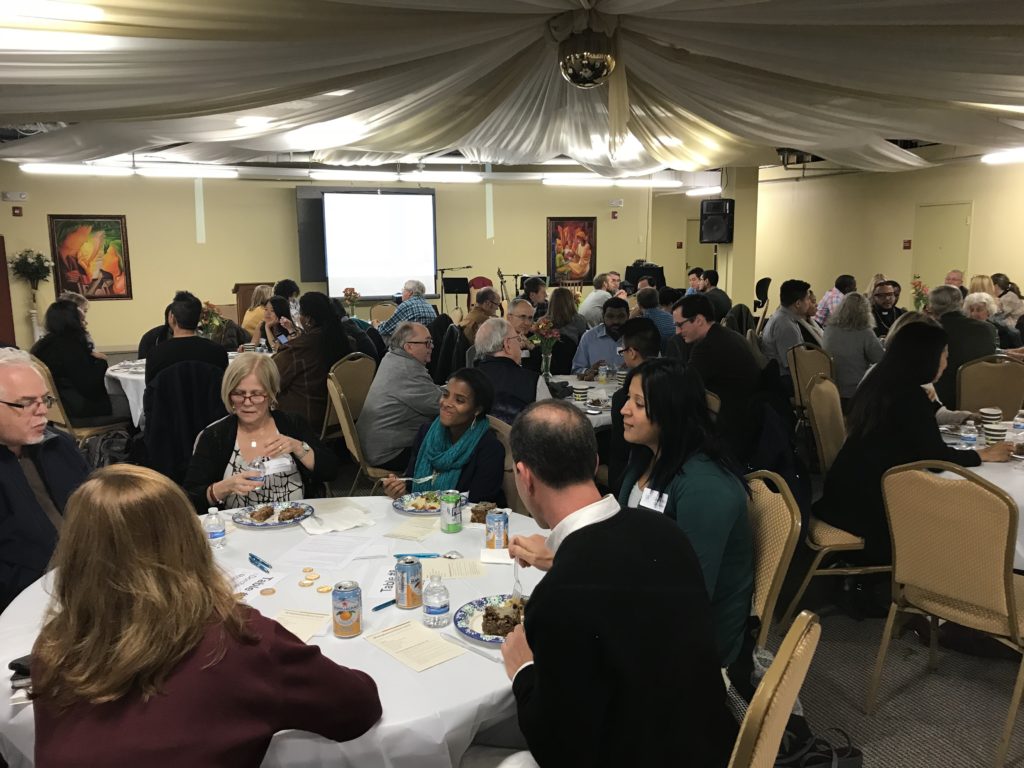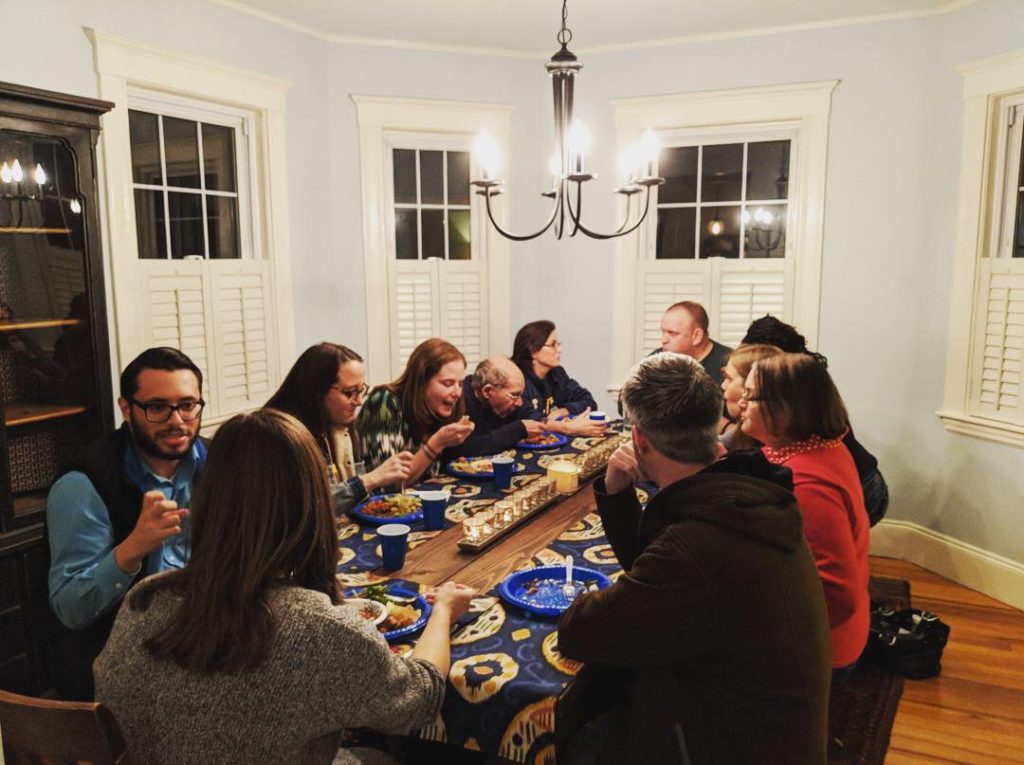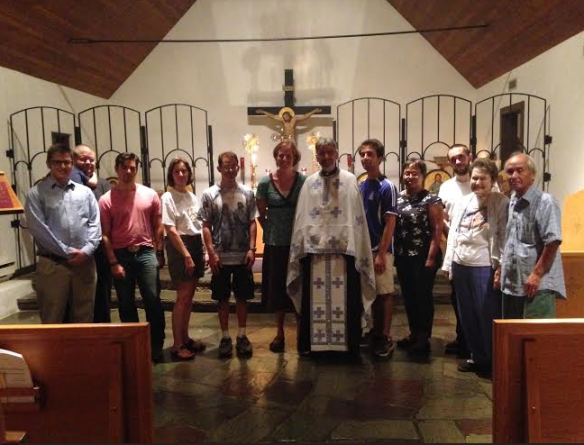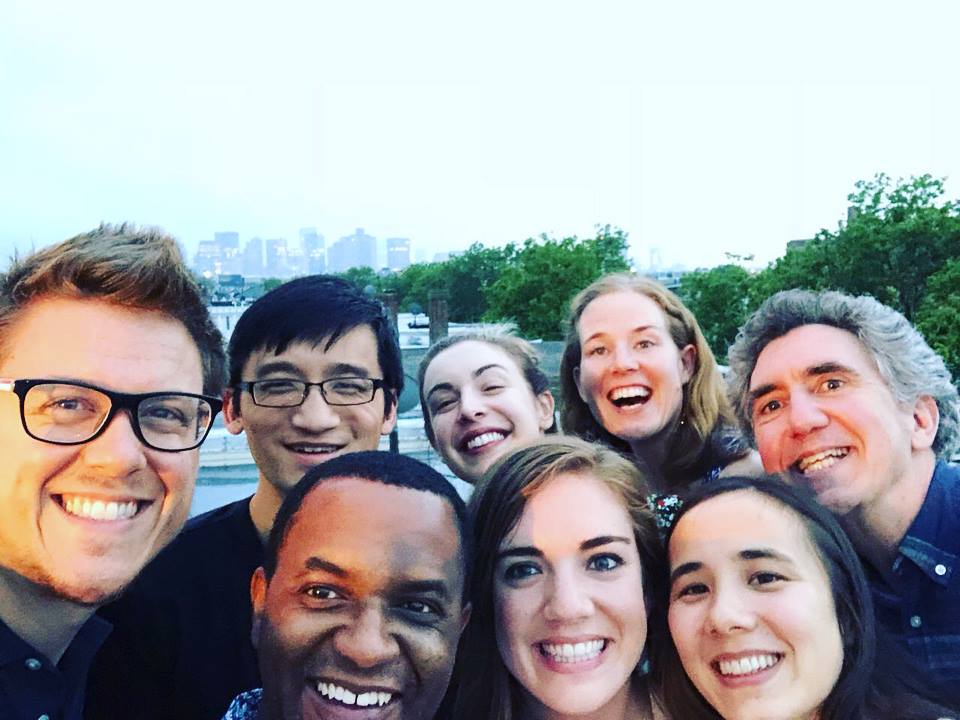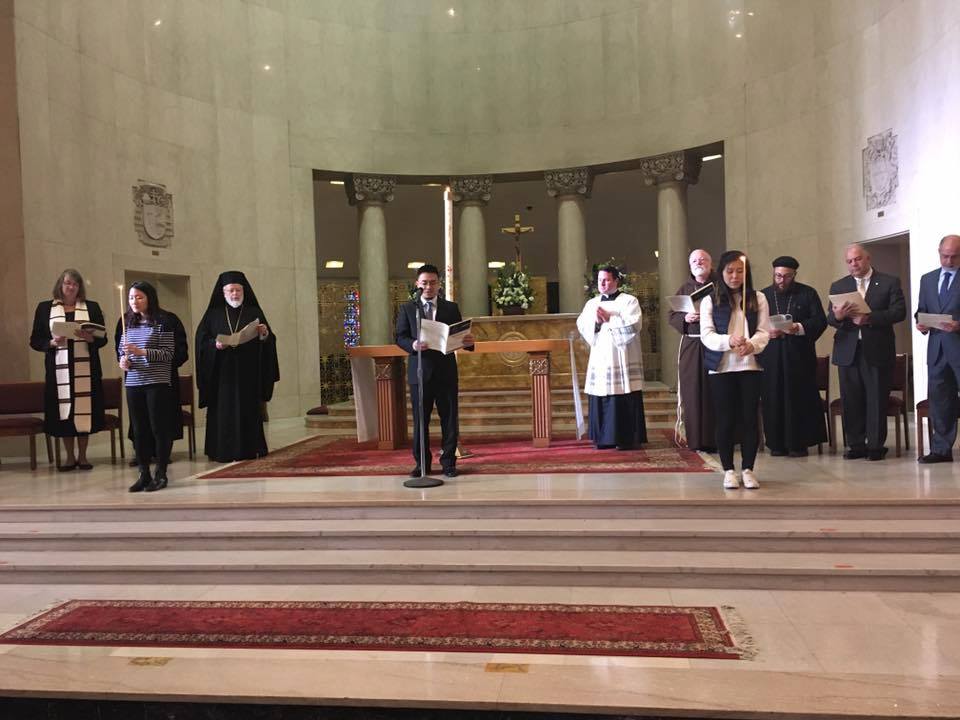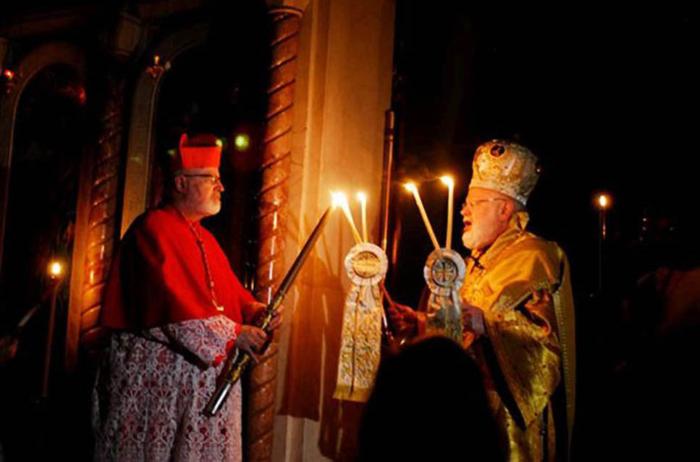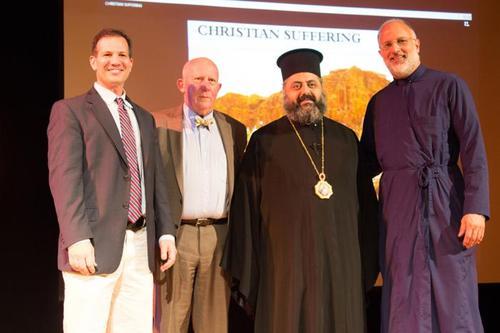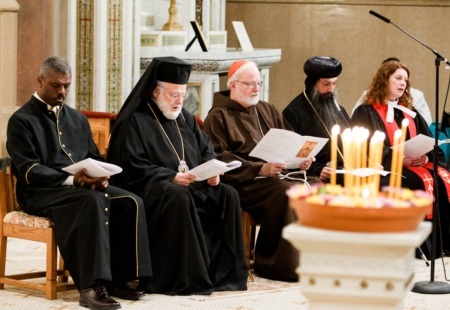
The Week of Prayer for Christian Unity is an international initiative where Christians worldwide are reminded of Jesus’ prayer for his disciples that “they may be one so that the world may believe” (John 17:21). Locally, UniteBoston coordinates evening collaborative gatherings of fellowship, prayer and worship from January 18-25 annually.
This year’s theme, liturgies, and prayer guides were developed together by Christian churches from Burkina Faso in western Africa. This year’s theme is based on the text from the Gospel of St Luke: “You shall love the Lord your God … and your neighbor as yourself” (Luke 10:27). In response to the question of who is my neighbor, Jesus responds with a parable illustrating love extending far beyond the limits expected by the lawyer. It is not shared identities that should prompt us to come to the aid of the other, but love of our ‘neighbor.’
Here in Boston, it may be common to relate to one another like Samaritans and Jews, divided culturally and theologically and living with unfriendly or hostile relationships. However, Jesus points us to a different way: to engage with those on the “other side” and even understand the situations of one another so intricately that we can ‘pour oil or wine’ on one another’s wounds.
Our times of insecurity and fear confront us with a reality where distrust and uncertainty come to the forefront of relationships. This is the challenge of the parable today: to whom am I a neighbour?
Mark Your Calendars – You are invited to mark your calendars and plan to attend the evening gatherings! In this time of Epiphany, we encourage you to receive the manifestation of Jesus Christ through those of different denominations, races and cultures. Let’s make the most of these opportunities in order to truly be the family of God and serve as the body of Christ in the world. Let’s also pray with our feet – express love to our neighbors as an act of prayer.
Community Dinner Template – You can use this template for conversation and prayer along this theme with your church or community group!
Spread the Word – We also appreciate help spreading the word to people in your congregation, family, friends, and neighbors. A personal invitation goes a long way.
Calling to mind our common commitment to ‘love thy neighbor,’ may the Week of Prayer for Christian Unity, January 18-25, 2024 be full of moments of conversion of heart through our encounters, so that “all may be one.” God of welcome, grant us the grace to risk embracing the stranger, tending their wounds and standing in solidarity with them. Strengthen our resolve to be kind and merciful and to act towards our sisters and brothers at all times as you do towards us. Lord Jesus, who prayed that all might be one, we pray to you for the unity of all Christians, according to your will, according to your means. May your Spirit enable us to experience the suffering caused by division, to see our sin and to hope beyond all hope. Amen.
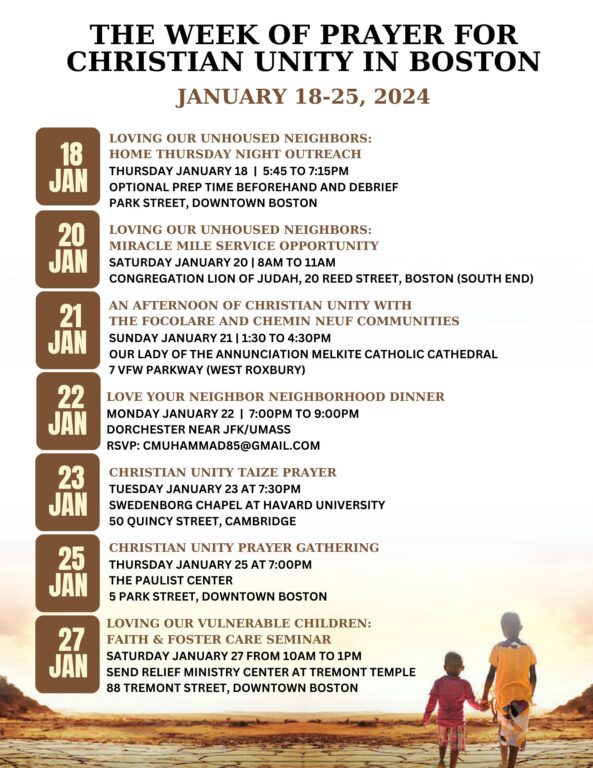
Schedule
Loving Our Unhoused Neighbors: HOME Thursday Night Outreach
Thursday January 18, 5:45 to 7:15pm with optional prep time beforehand and debrief afterwards | Park Street Church, 1 Park Street, Downtown Boston

Join to serve with Park Street Church’s HOME ministry, where they welcome 60-100+ unhoused neighbors and other neighbors in need to fellowship meals hosted on Thursday evenings from 5:45-7:15pm and Saturday mornings from 8:30-11am. Come join us as we fellowship with our guests over a warm meal, while also providing other essential support, ranging from clothing and toiletries to prayer, Bible study, and ESL. You don’t have to sign up in order to serve with us, but feel free to contact Simon & Maria at home@parkstreet.org if you have any questions!” You can also click here to watch a video about this ministry.
Loving Our Unhoused Neighbors: Miracle Mile Service Opportunity
Saturday January 20 | 8am to 11am | Congregation Lion of Judah, 20 Reed Street, Boston (South End)

Miracle Mile Ministries is a collaborative of churches devoted to a sustained, deliberate, strategic response to the area we call “Miracle Mile,” a roughly 2-square-mile area in the South End of Boston often referred to as “Mass & Cass” or “Methadone Mile.” It is led by a core group of six Boston-area Lead Churches (Congregación León de Judá, Antioch Community Church Brighton, Cornerstone Church, Restoration City Church, Hilltop Church and Symphony Church) and also involves a dozen or so churches and parachurch ministries from throughout Boston’s neighboring communities who faithfully support this effort, week after week. Please come join us on Saturday January 20 at 8am to serve our neighbors, build relationships, and share the love of Christ on Miracle Mile. We will be serving breakfast, distributing clothes, and ministering on the street. Learn More about Miracle Mile Ministries here, and you can sign up to volunteer here. For questions, email Heidi, heidi.marie99@aol.com
An Afternoon of Christian Unity with The Focolare and Chemin Neuf Communities.
Sunday January 21 | 1:30 to 4:30pm | Our Lady of the Annunciation Melkite Catholic Cathedral
7 VFW Parkway (West Roxbury)

The Focolare and Chemin Neuf communities are hosting an afternoon of activities and prayer around the theme “You shall love the Lord your God… and your neighbor as yourself.” (cf. Luke 10:27)
1:30 – 2:30 Children’s Program (ages 4-18) Adults welcome
2:30 – 3:30 Love Thy Neighbor // The Art of Loving (all ages!!)
3:30 – 4:00 Prayer for Christian Unity in the sanctuary
4:00 – 4:30 Closing conversation in Fellowship Hall
Questions? Email julie.james.boston@gmail.com
“Love Your Neighbor” Neighborhood Dinner
Monday January 22 from 7:00pm to 9:00pm | Dorchester near JFK/UMass

Join Cleo for dinner, prayer and reflection on the story of the Good Samaritan with a creative arts lens. RSVP by emailing cmuhammad85@gmail.com and she will give you the specific address.
Christian Unity Taize Prayer
Tuesday January 23 at 7:30pm | Swedenborg Chapel at Havard University, 50 Quincy Street, Cambridge

Join for a prayer gathering on Harvard Campus with the Taize liturgy of prayer and song. The Taizé Community is an ecumenical Christian brotherhood in Burgundy, France, composed of over 100 brothers from all over the world, from Catholic and Protestant traditions, a true “parable of community” that wants its life to be a sign of reconciliation between divided Christians and between separated peoples. Join in this time of song, prayer, and silence around the theme of ‘love thy neighbor.’
The service will be streamed on Facebook here: https://fb.me/e/4cMP31pZf
Christian Unity Prayer Gathering
Thursday January 25 at 7:00pm | The Paulist Center, 5 Park Street, Downtown Boston

Please join us in prayer using the worldwide prayer template around the theme “Love Thy Neighbor” that Christians throughout the world will be using this week. This gathering is hosted by the Paulist Center – Fr. Rich Andre will be presiding, Dean Amy McCreath will be preaching, and other clergy in the service include Rev. Kelly Fassett and Rev. Colin Leitch. We look forward to praying with you.
Loving Our Vulnerable Children: Faith & Foster Care Seminar
Saturday January 27 from 10am to 1pm | SEND Relief Ministry Center, Tremont Temple, 88 Tremont Street, Downtown Boston

With over 9,000 youth in Massachusetts foster care, the needs of local foster families, biological families, and social workers are great. Join Fostering Hope New England and SEND Relief to learn how you can make a difference in the lives of these vulnerable children and families. You will be inspired as you hear from biological families involved with foster care, Department of Children & Families staff, trauma experts, and experienced foster parents. This event is for anyone passionate about vulnerable children—not just those ready to foster or adopt.
The seminar will take place at the SEND Relief Ministry Center at Tremont Temple in Boston, on January 27th from 10 a.m. to 1 p.m. and includes brunch. Register for FREE at bit.ly/faithfostercare
Photos from Previous Years
